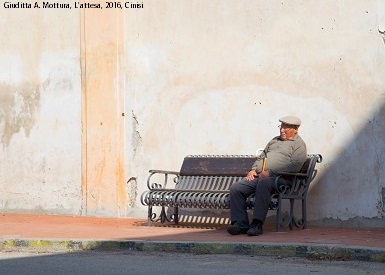Sinophone verses from lyrical (e)scapes: an account of poetics and poïesis in distress
DOI:
https://doi.org/10.54103/2035-7680/19132Parole chiave:
Sinophone poetry; Covid-19 pandemic; distress; collective consciousness; cultural repositoryAbstract
The initial outburst of the pandemic, in early 2020, forced China and the rest of the world into seclusion, anxiety, social alienation. In the Sinosphere, a human response to the aporia of isolation is the lyrical production, a prosperous literary activity through which the individual gives shape to a collective consciousness.
The present paper examines a collection of Sinophone verses sprung from the Covid-19 threat and dismay, as a psychic necessity to re-organize the perception of the outer world. Specifically, it studies a body of fifty-two poems composed by twelve lyrical Sinophone voices, published in Chinese in a spring number of the respected literary journal Jintian 今天. This investigation primarily focuses on the cultural, aesthetic, and psychological value of a lyrical polyphony embodied by unchained Sinophone voices, which sing against the background of a common predicament. In parallel, it reads the collection as a collective memory and a cultural repository, engendered by a narrative projection of experience: to that end, it combines a narratological approach with the observation of certain lyrical features of a “poetics of distress”.
Downloads
Riferimenti bibliografici
Baikie, Karen A., and Kay Wilhelm. “Emotional and Physical Health Benefits of Expressive Writing.”. Advances in Psychiatric Treatment, vol. 11, 2005, pp. 338-346. https://www.cambridge.org/core/services/aop-cambridge-core/content/view/ED2976A61F5DE56B46F07A1CE9EA9F9F/S1355514600002479a.pdf/emotional-and-physical-health-benefits-of-expressive-writing.pdf. Accessed 18 Jan. 2022.
Bei Dao 北岛. Xuangao 宣告 (Declaration). https://www.jintian.net/today/?action-viewnews-itemid-2680. Accessed 22 Jan. 2022.
Bokenkamp, Stephen R., and Peter S. Nickerson. Early Daoist Scriptures. University of California Press, 1997.
Fludernik, Monika. “Natural Narratology and Cognitive Parameters.” Narrative Theory and Cognitive Science, edited by David Herman, CSLI Publications, 2003, pp. 243-267.
----. An Introduction to Narratology. Routledge, 2006.
----. Towards a ‘Natural’ Narratology. Routledge, 1996.
Heidegger, Martin. Introduction to Metaphysics, Second Edition. Yale University Press, 2014.
Jullien, François. Dé-coïncidence. D'où viennent l'art et l'existence. Grasset, 2017
Li, Jianchun. “The Early Spring: Elegy for Dr. Li Wenliang.” Translated by Yan Zhou. Musings During a Time of Pandemic: A World Anthology of Poems on COVID-19, edited by Christopher Okemwa, Kistrech Theatre International, pp. 608-609.
Lupke, Christopher. “Introduction: Toward a Chinese Lyrical Modernity.” New Perspectives on Contemporary Chinese Poetry, edited by Christopher Lupke, Palgrave Macmillan, 2008, pp.1-8.
Mai Mang. “Four Poems.” https://aaari.info/cuny-forum-8-mang/. Accessed 12 Jan. 2022.
Picerni, Federico. “‘Poets, What Can We Do?’ Pandemic Poetry in China’s Mobilization against COVID-19.” Asian Studies, vol. 10, no. 1, 2022, pp. 123-153. https://revije.ff.uni-lj.si/as/article/view/10197/10037. Accessed 20 Jan. 2022.
Turner, Michael. “The Therapeutic Effect of Lyric Writing on the Writer: A Narrative Perspective.” Journal of Poetry Therapy, vol. 27, no. 3, 2014, pp. 143-154.
Van Crevel, Maghiel. “Unofficial Poetry Journals from the People’s Republic of China: A Research Note and an Annotated Bibliography”, 2007, https://cpb-us-w2.wpmucdn.com/u.osu.edu/dist/b/405/files/2014/10/VanCrevel_UnofficialJournals-16pmlxs.pdf. Accessed 24 Jan. 2022.
White, Hayden. “The Value of Narrativity in the Representation of Reality.” Critical Inquiry, vol. 7, no. 1, 1980, pp. 5-27. https://www.jstor.org/stable/1343174?seq=1#metadata_info_tab_contents. Accessed 24 Jan. 2022.
Yeh, Michelle. “Light a Lamp in a Rock: Experimental Poetry in Contemporary China.” Modern China, vol. 18, no. 4, 1992, pp. 379-409.
----. “The ‘Cult of Poetry’ in Contemporary China.” The Journal of Asian Studies, vol. 55, no. 1, 1996, pp. 51-80.
Zou Bo 邹波, et al. Chun zhi ji: Gengzi yi shi zhuanji 春之祭——庚子疫诗专辑. Jintian 今天, vol. 125, no. 1, 2020, pp. 1-84.
Dowloads
Pubblicato
Come citare
Fascicolo
Sezione
Licenza

Questo articolo è soggetto a licenza Creative Commons Attribution-NonCommercial-NoDerivatives 3.0 International License.




